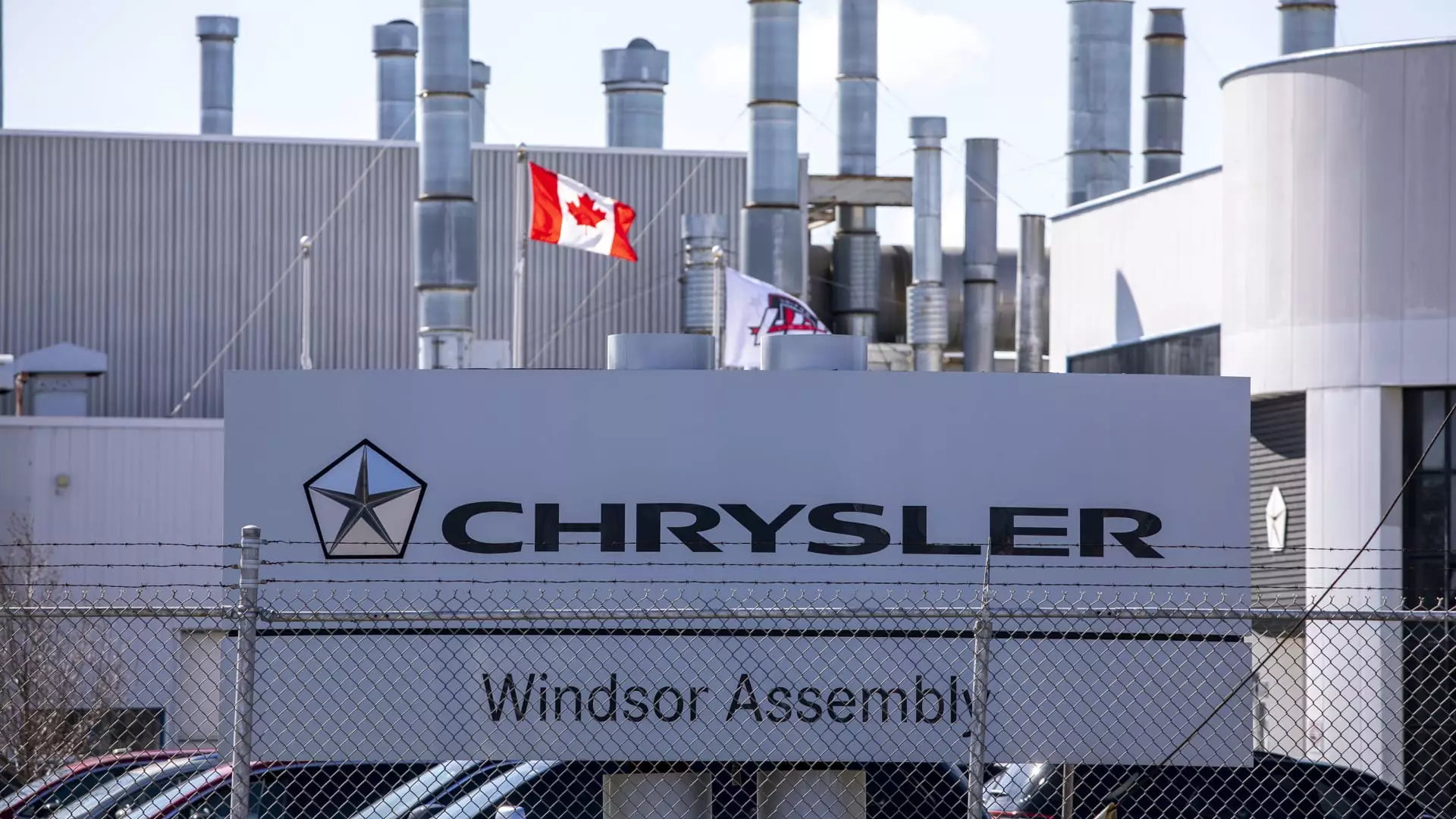In a sudden move that sends shockwaves through the automotive industry, Stellantis has halted production at two key assembly plants in Canada and Mexico due to the implementation of a hefty 25% tariff on imported automobiles. This unprecedented decision highlights a significant challenge posed by governmental tariff policies, raising questions about the economic landscape of North American manufacturing. While some may argue that tariffs are a necessary tool for protecting domestic industries, the real-world consequences, such as job losses and economic destabilization, paint a murkier picture.
A Strategic Retreat in Manufacturing
The shutdown at Stellantis’s Windsor Assembly Plant in Ontario and its Toluca facility in Mexico represents a dramatic response to new tariffs imposed by the Trump administration. With production paused for two weeks in Canada and an entire month in Mexico, the ripple effect threatens approximately 5,400 jobs—4,500 at the Canadian plant alone, in addition to approximately 900 at supporting U.S. facilities. This staggering figure raises serious concerns about the health of these communities as livelihoods hang in the balance, turning their economic reality into an unfortunate casualty of a policy devised with supposed long-term benefits.
Challenges Faced by International Collaborations
As global supply chains become more intertwined, the need for agility and adaptability in manufacturing has never been greater. Stellantis’s decision to pause production illustrates the inherent risks in cross-border automotive production, driven in part by the complex web of tariffs and trade agreements. The underlying assumption that protectionist policies will bolster domestic manufacturing may be a dangerous simplification. The interconnected nature of industry means that when one element falters, as currently seen with Stellantis, the ramifications spread quickly, causing widespread disruption.
Autonomous Decisions and Employee Welfare
Antonio Filosa, the North American chief of Stellantis, has emphasized the company’s commitment to evaluating the long-term implications of these tariffs. However, it’s poignant to recognize that while corporate strategies are reassessed, real people face immediate consequences. The employees who depend on these production lines are not merely statistics or collateral damage; they are individuals, earning a living and providing for their families. The automaker’s abrupt decision raises ethical questions about corporate responsibility and the human impact of their strategic choices.
The Bigger Picture: Economic Fallout and Industry Response
While one might contend that tariffs serve to create a level playing field by penalizing foreign imports, the reality is starkly different. A squeeze on production can lead to innovation stagnation, increased vehicle prices, and an overall downturn in consumer trust. The industry’s immediate response to sweeping tariffs must not solely revolve around compliance, but rather call for a robust strategy to safeguard both jobs and the manufacturers’ operational viability. It is important to advocate for policies that protect American workers without stifling the flexibility that modern manufacturing necessitates.
In a political environment characterized by quick decisions and the ups and downs of trade negotiations, the situation at Stellantis serves as a crucial reminder that while political maneuvers may aim for long-term goals, the immediate consequences can be catastrophic for American families striving for stability amidst uncertainty.

